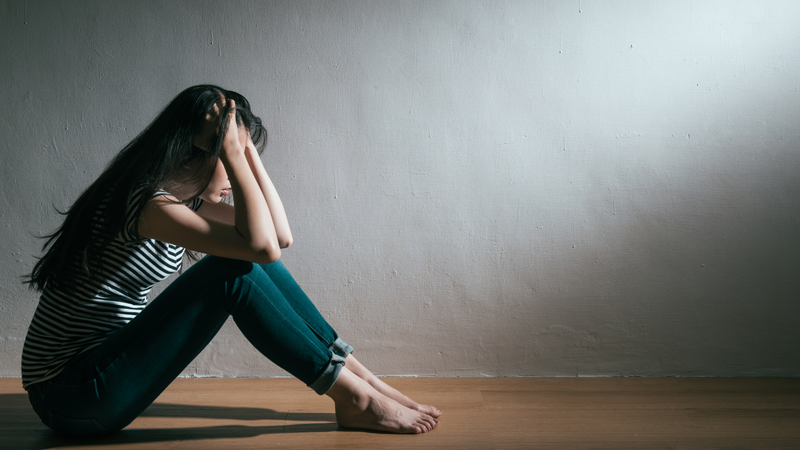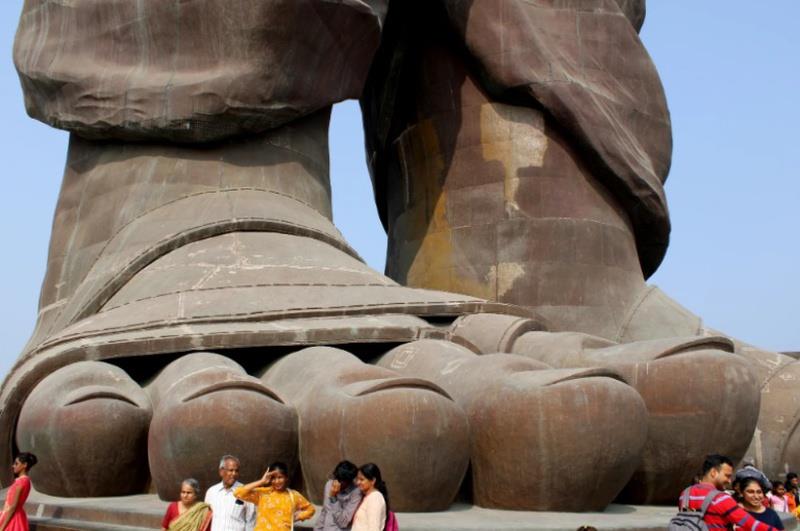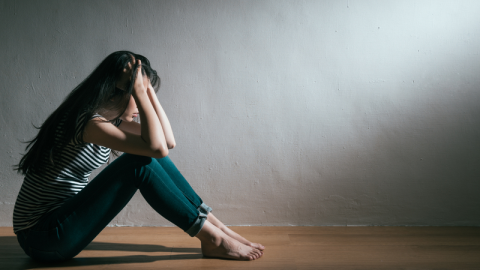Megalophobia is a fear that occurs in many people. If not treated early, it can have a great impact on the mental and physical health of the sufferer.
If you are obsessed with giant things like ships, planes, and skyscrapers, you may have a bigophobia. This article will help you understand some more information about this syndrome.
What is the fear of big things?
 The fear of big things makes many people feel self-conscious
The fear of big things makes many people feel self-conscious
We humans have a lot of fear, some people are afraid of narrow spaces, animals, heights... but there are also many people who are afraid of big, giant things. The condition in which a person feels extremely afraid, excessively obsessed with super-large things such as ships, airplanes, large statues ... is called the syndrome of fear of big things. Or maybe Megalophobia.
Megalophobia is one of the types of anxiety disorders that occur in humans. In today's modern pace of life, it's not difficult to come across super-giant things every day. Therefore, if not treated early, this syndrome will greatly affect the life and activities of the sufferer.
The fear of big things can make people live in fear, suffering for a long time, affecting social relationships, work and quality of life.
Recognizing signs
People with this syndrome often have persistent, persistent fears and excessive manifestations of obsessive objects and phenomena. The most common telltale signs of bigophobia are:
- Always afraid, even obsessive thinking about huge and big things (including animals, constructions or natural elements such as oceans, mountains, valleys, ...).
- Often there is no desire or habit to mention, even avoid mentioning big things like buildings, statues, animals, etc. in conversations.
- Do not approach places of enormous size such as buildings, ships, barges, valleys, large statues, etc.
- Avoid going out a lot, rarely meeting and playing with friends for fear of seeing something big.
In the case of encountering large, giant objects, the patient may experience extreme fear, with manifestations such as:
- Panic.
- Dizzy , dizzy.
- Want to get rid of fear immediately.
- Nausea, vomiting half.
- Discomfort in the epigastrium.
- Shortness of breath, rapid breathing.
- Increase heart rate.
- Chest pain.
- Trembling.
What causes the fear of big things?
 Past experiences of the patient may be the cause of the syndrome
Past experiences of the patient may be the cause of the syndrome
The fear of big things is more common in children and women. Experts have yet to determine the exact cause, though. But some grounds that can be identified as the cause of this syndrome include:
Negative experiences in the past
Our body has a part of the amygdala - an organ that plays a role in determining and responding to emotions including anger, anxiety, and fear. When encountering negative obsessions, accidents or problems, this organ will remember and automatically respond when encountering those problems again. Therefore, if in the past or in childhood, the patient had an accident involving huge things or witnessed a catastrophic disaster involving ships, tall buildings, huge statues, … can develop an excessive fear of super-big, huge things.
Genetic
Similar to generalized anxiety disorder , panic disorder, depression, other phobias, etc., bigophobia is also influenced by genetic factors.
Family environment
If a child grows up in a family with a parent with a sibling who has this syndrome or has depression , he or she will have psychological instability and a very high risk of having the syndrome.
Influence from other psychological problems
Usually people with bigophobia also have other psychological problems such as: depression, anxiety disorders (panic disorder, generalized anxiety disorder, obsessive-compulsive disorder). ,…)), other phobias such as fear of airplanes, fear of the ocean, fear of heights, etc.
Negative information from the media
If you accidentally see a lot of negative information such as giant monsters under the sea, strange accidents, etc., it can also cause an outbreak of fear of big things.
The treatments
 Psychotherapy is a safe therapy for people with bigophobia
Psychotherapy is a safe therapy for people with bigophobia
Currently, bigophobia can be treated with psychotherapy. This is also one of the highly effective measures for sufferers, three methods commonly used in the treatment of the fear of big things include:
- Systemic desensitization therapy: This therapy is performed to reduce fear, anxiety, and insecurity by exposing the patient to frequent and continuous exposure to fear. This therapy is highly appreciated for its safety and effectiveness for patients.
- Cognitive behavioral therapy: Therapy is performed entirely in the form of conversation, helping to reduce the patient's anxiety and irrational fears.
- Use of drugs: Some patients may be prescribed to use one of the drugs such as: benzodiazepine tranquilizers, beta blockers, antidepressants.
Each disease, psychological problem causes a lot of difficulties for the patient in life. Therefore, when suffering from the fear of big things , you should see a specialist for timely and effective treatment.


 The fear of big things makes many people feel self-conscious
The fear of big things makes many people feel self-conscious Past experiences of the patient may be the cause of the syndrome
Past experiences of the patient may be the cause of the syndrome Psychotherapy is a safe therapy for people with bigophobia
Psychotherapy is a safe therapy for people with bigophobia






